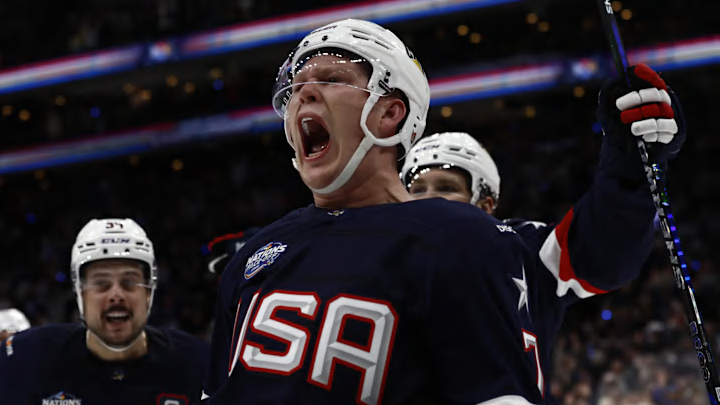1 thing the NHL didn't learn
3-2-1 points system
Many fans were really excited to learn that the NHL was going with the 3-2-1 points system for the 4 Nations standings. It's a points system that would highlight the teams winning in regulation, force teams to put their chips on the table to push hard with the game in the waning seconds, and it feels like it's more fair to the best teams in the league.
Under a 3-2-1 system, a team gets three points for a regulation win, two points for an overtime win, and one point for an overtime loss. Many argue this would make playoff races feel more exciting, as it would really help the cream rise to the top and would have the rest of the teams fighting for playoff spots with wins in regulation really impacting the standings.
In the past, teams have lifted their profile on overtime losses. The Vancouver Canucks are in a playoff spot as of this writing because they have 11 overtime losses.
This was just too short of a tournament to give the NHL any real data behind the 3-2-1 format. Because of the format, the U.S. had nothing to play for when they played Sweden on Monday, and they clearly took their foot off the gas. The NHL doesn't want that in the regular season, so we don't expect this to be implemented anytime soon.
